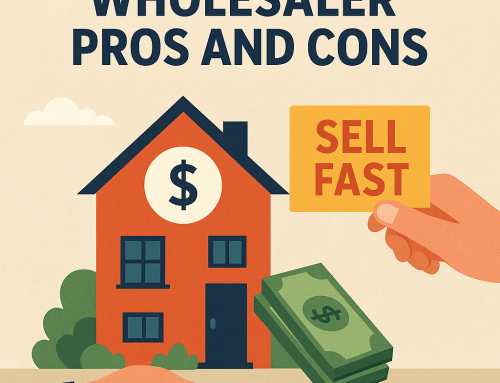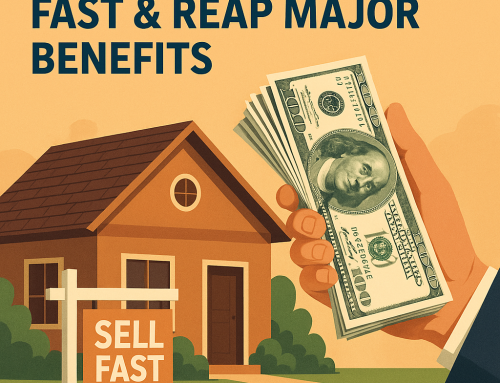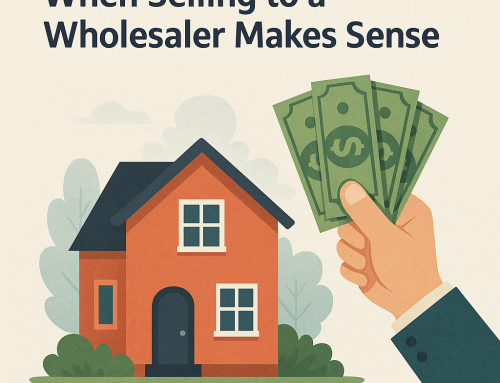- Understanding the Roles
- Selling Fast: Pros and Cons
- Wholesaler Benefits
- Wholesaler Drawbacks
- Real Estate Agent Benefits
- Real Estate Agent Drawbacks
- Choosing the Right Path for You
- Final Thoughts
When homeowners decide to sell their property, their primary concerns often revolve around speed and profitability. In an increasingly fast-paced real estate market, two prominent options emerge: working with a wholesaler or engaging a traditional real estate agent. Understanding the differences between these avenues can significantly impact your selling experience, especially if your goal is to sell your home fast for cash.
Understanding the Roles
Wholesalers
Wholesalers act as intermediaries in real estate transactions. They typically secure a property under contract and then assign that contract to an end buyer, often for a profit. Their expertise lies in making quick deals and they often target distressed properties that require significant repairs or renovations. If you need to sell your home fast, a wholesaler can provide cash for your home without the traditional lengthy processes associated with selling.
Real Estate Agents
Real estate agents, on the other hand, serve clients by marketing properties and navigating the complexities of the real estate market. They list homes on multiple platforms, conduct open houses, and negotiate offers. While real estate agents may take longer to sell a home due to their comprehensive selling strategy, they often aim to maximize the price received, which can benefit homeowners looking for the best return on their investment.
Selling Fast: Pros and Cons
Wholesaler Benefits
1. Speed of Transaction: Wholesalers can close deals quickly, sometimes within days of making an agreement. This fast turnaround is ideal for sellers needing immediate cash.
2. Reduced Hassle: Selling to a wholesaler typically involves less paperwork and fewer showings, making it a more straightforward process.
3. No Repairs Needed: Wholesalers are often willing to buy properties in any condition, meaning you don’t have to invest time or money in renovations.
Wholesaler Drawbacks
1. Lower Sale Price: While the sale is faster, it usually comes at a lower price than what you might achieve through traditional methods. Wholesalers need to make a profit, which can mean you receive less cash for your home.
2. Less Market Exposure: Selling through a wholesaler means that fewer potential buyers will see your property, possibly leading to a lower sale price compared to listing it widely.
Real Estate Agent Benefits
1. Maximized Sale Price: Agents often employ strategies to market your property effectively, aiming to attract competitive offers and secure a higher sale price.
2. Broader Exposure: By listing your home on multiple platforms and networks, agents can reach a larger pool of buyers. This often translates to better offers and more favorable terms.
3. Professional Guidance: Agents are knowledgeable about the local market and can provide insights that help you navigate the complexities of selling your home.
Real Estate Agent Drawbacks
1. Time-Consuming: The traditional selling process can be lengthy, often taking weeks or months to close a deal. If you’re pressed for time, this might not be the best approach.
2. Fees and Commissions: Real estate agents typically charge a commission, usually a percentage of the sale price. This expense can reduce the total cash you receive from the sale.
Choosing the Right Path for You
When deciding between a wholesaler and a real estate agent, consider your immediate needs and long-term goals. If you need to sell your home fast for cash and aren’t overly concerned about getting the highest price possible, a wholesaler might be your best option. On the other hand, if you’re willing to invest more time and hope for a better financial return, engaging with a real estate agent may be the way to go.
Final Thoughts
Every homeowner’s situation is unique, and the decision to go with a wholesaler or a real estate agent should be based on the specific circumstances surrounding your property sale. Wholesalers can offer rapid solutions, while real estate agents provide valuable market expertise and the potential for higher returns. Consider your financial situation, timeline, and desired outcome before making your choice. By evaluating these factors, you’ll be better equipped to navigate the property selling process efficiently and effectively.




